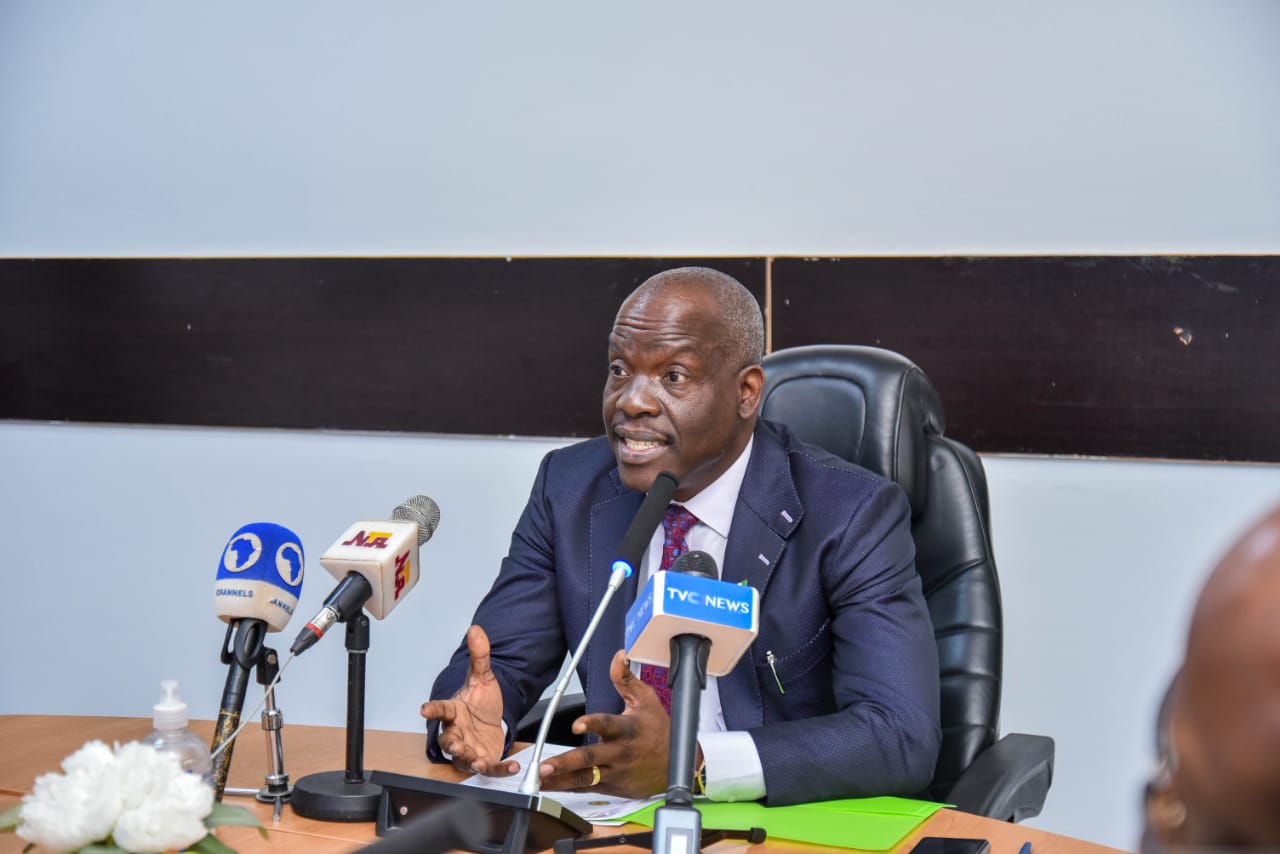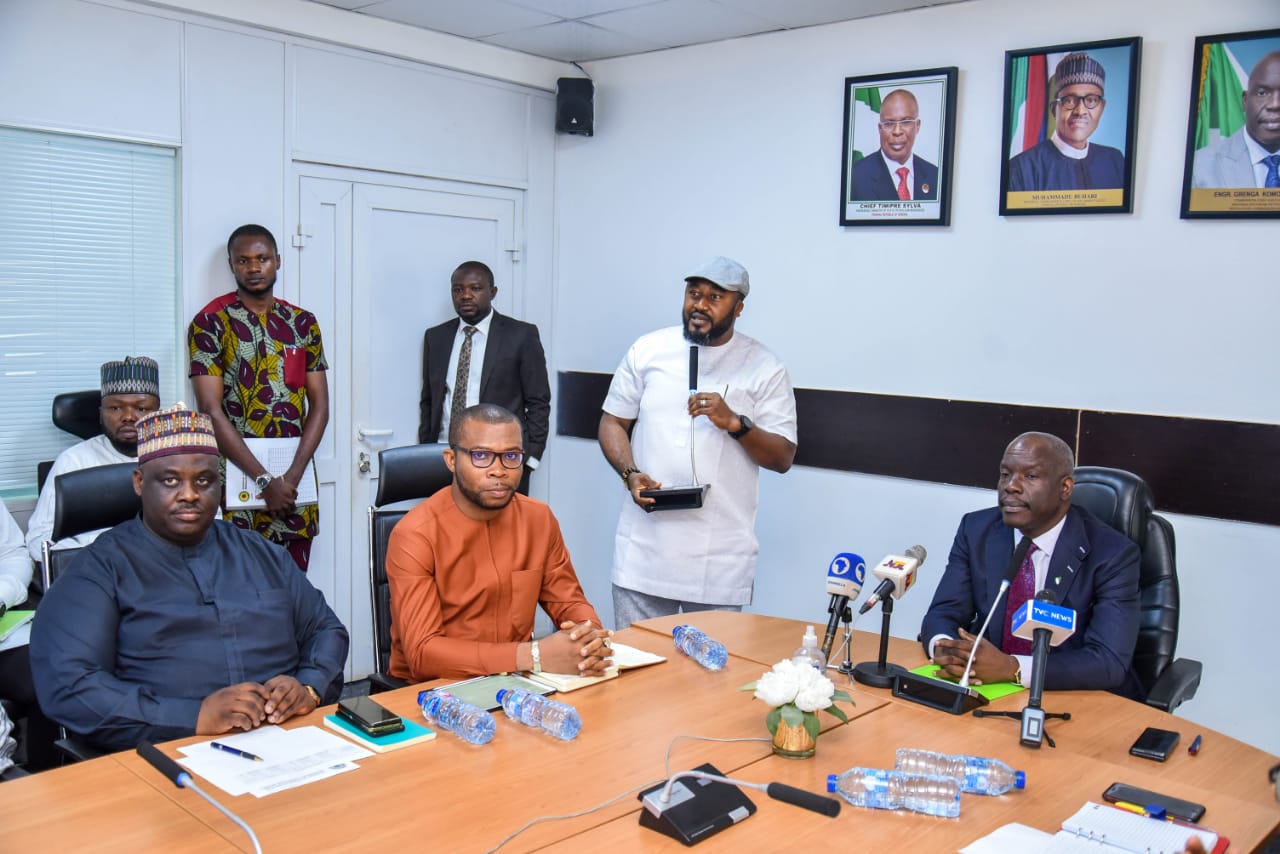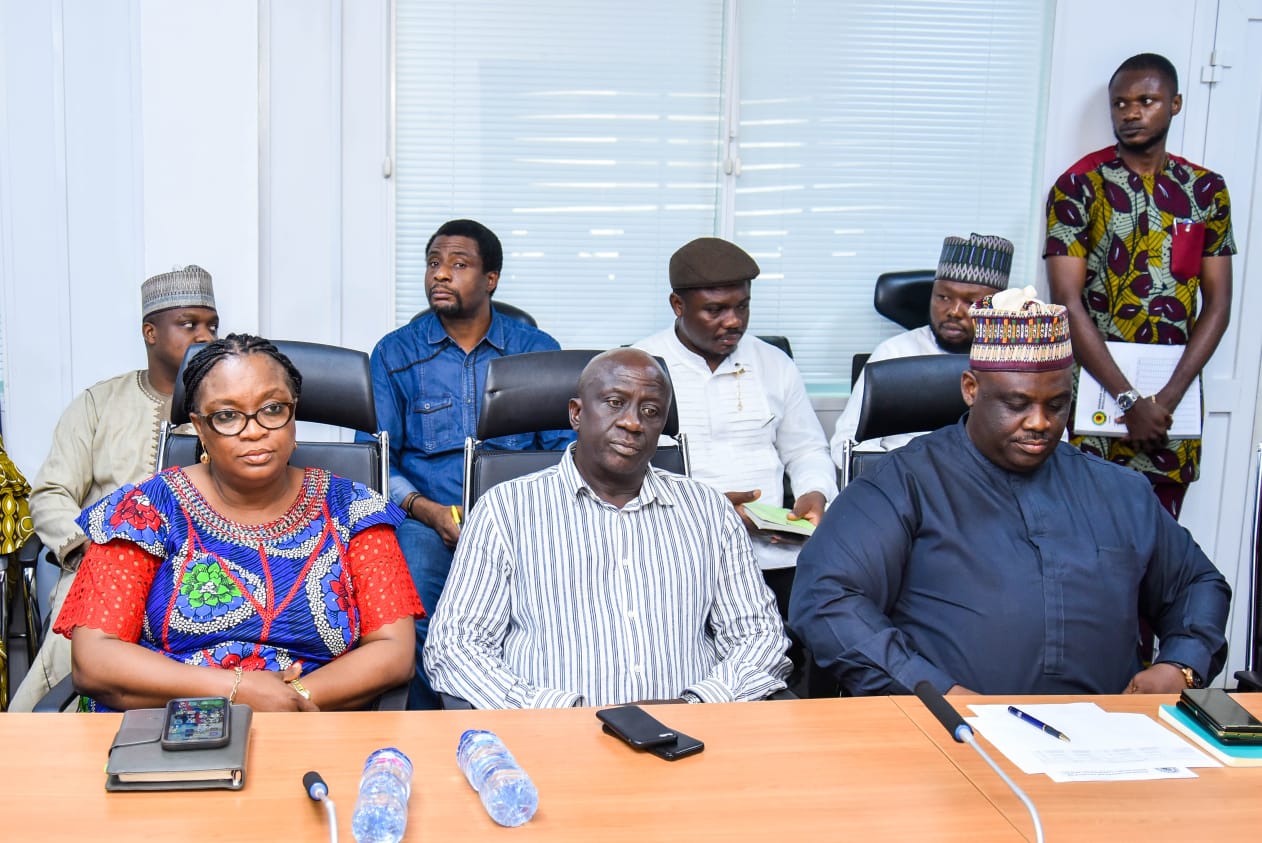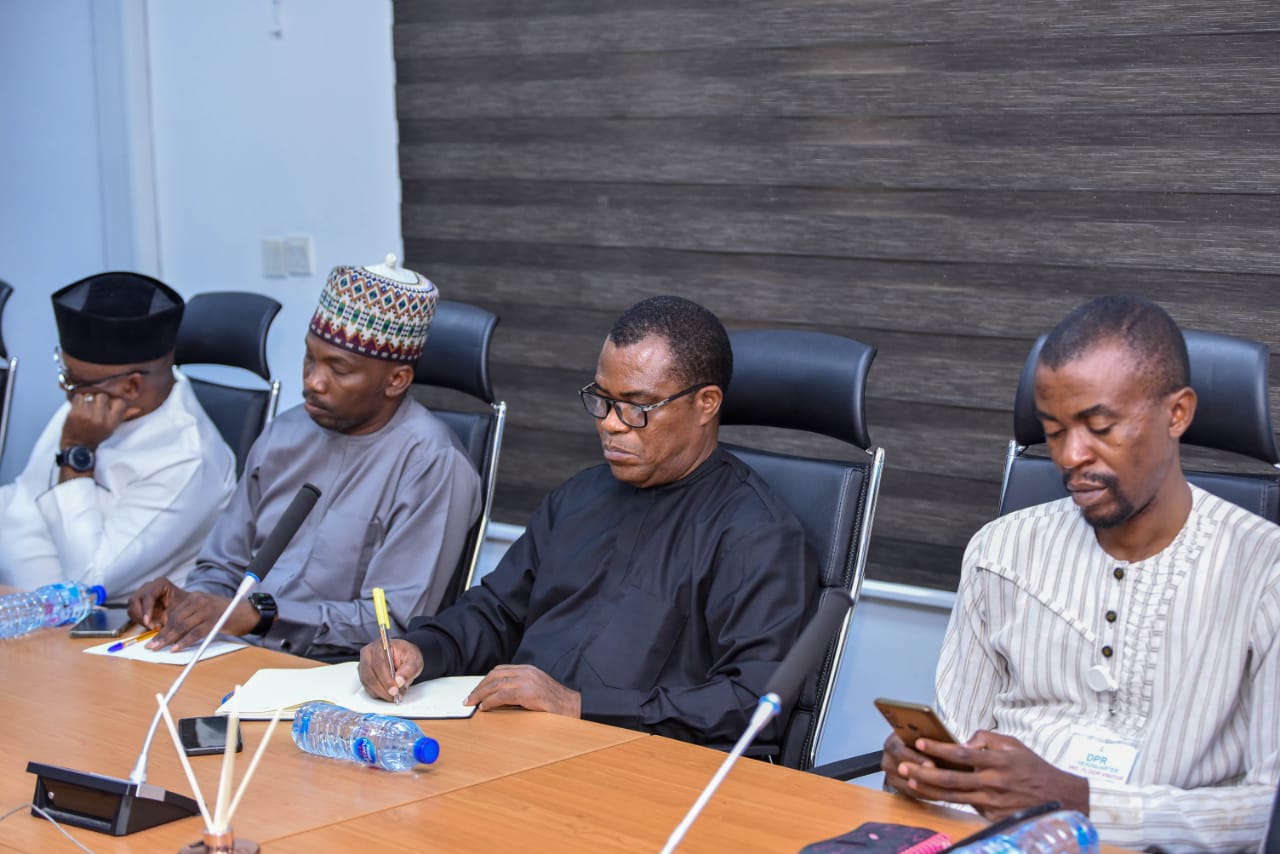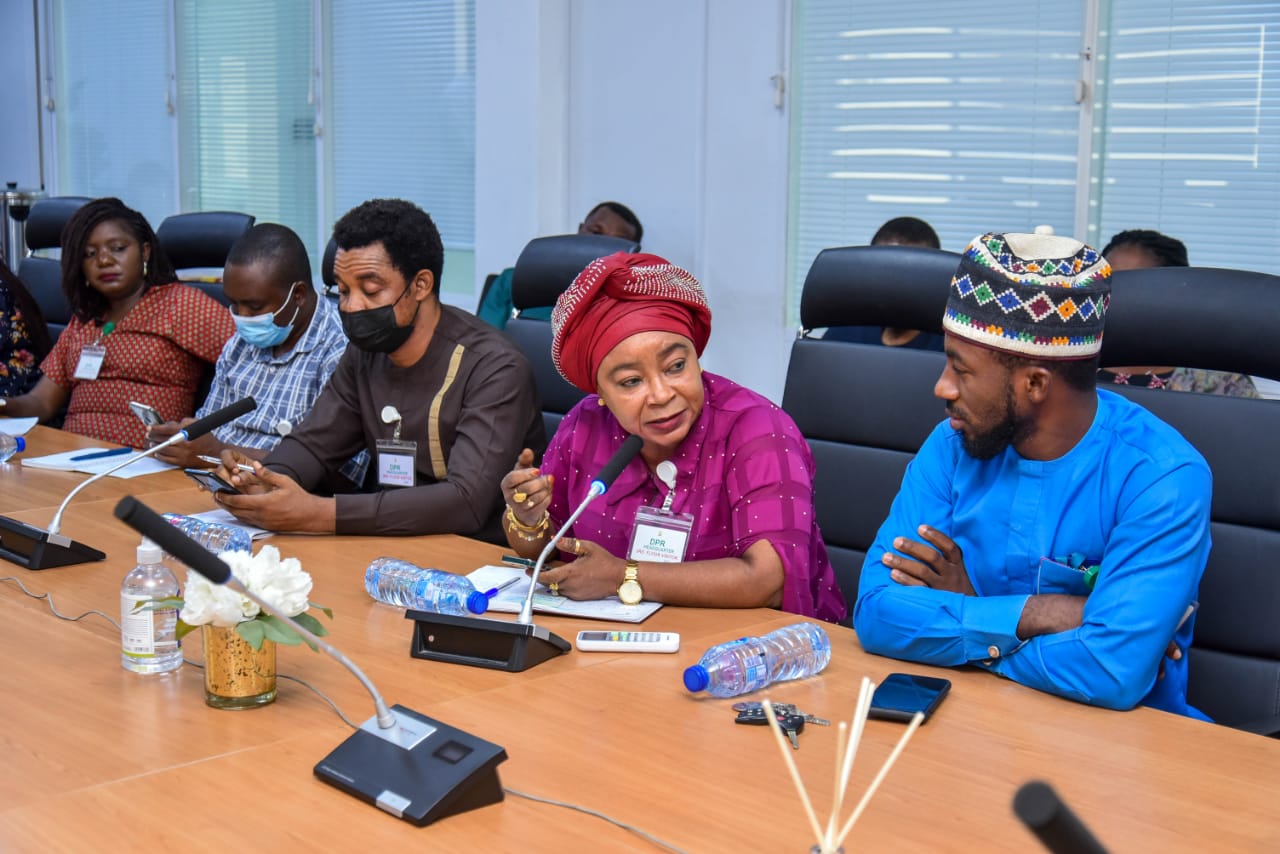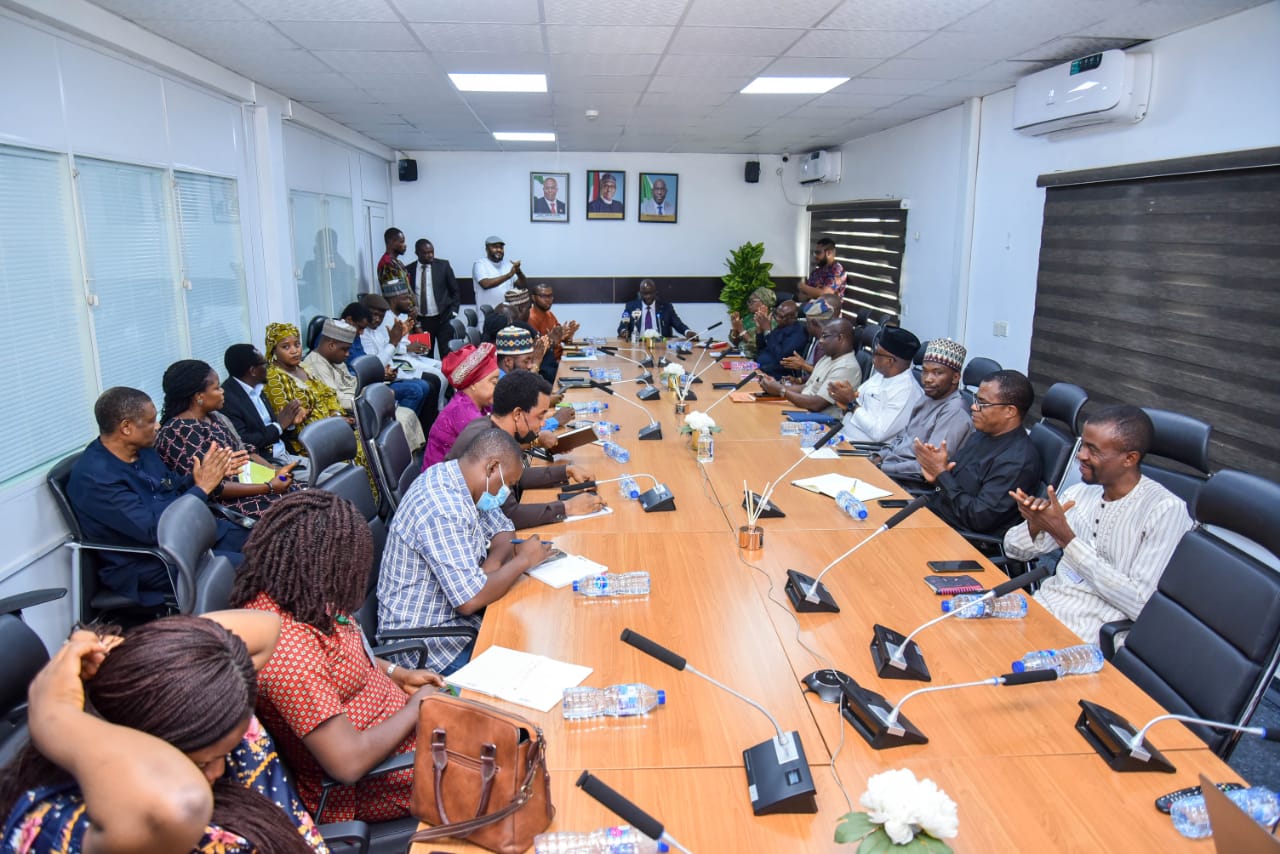As a public institution committed to discharging our mandate in the interest of our country, we have a responsibility to inform the public of our activities and the progress made so far, while delivering on our mandate.
Pursuant to that commitment, it is the Commission Chief Executive’s mandate to formally declare the National oil and gas reserves position as of 1st January 2022 in line with the provisions of Sections 7 (i), (j), (k) and (r) of the Petroleum Industry Act (PIA) 2021 which stipulates that all operating exploration and production companies are to submit their annual report of reserves to the Commission.
The NUPRC wishes to intimate the general public and her stakeholders on proactive initiatives undertaken by the Commission since assumption of duty six (6) months ago towards the enhancement of crude oil and gas production, taking advantage of current market realities such as the upsurge of crude oil prices to $106.25 per barrel and disruptions in the supply of gas due to the war in Ukraine.
2021 NATIONAL ANNUAL REPORT ON RESERVES
A total of sixty-one (61) operating companies submitted their 2021 annual report on reserves in line with the provisions of the PIA, 2021. Analysis of the report indicates that the Nation’s oil and condensate reserves status as at 1st January 2022 was 37.046 Billion barrels, representing a slight increase of 0.37% compared to 36.910 Billion barrels as at 1st January 2021. On the other hand, the National Gas reserves status as of 1st January 2022 was 208.62 (trillion cubic feet) TCF, representing an increase of 1.01% compared to 206.53 TCF as at 1st January 2021.
INITIATIVES TO ENHANCE CRUDE OIL PRODUCTION
The Commission recognizes that the formulation of all-inclusive strategies to increase crude oil and gas reserves (from 37 billion barrels and 208.62 TCF) requires thorough consideration of all factors militating against efficient and effective exploration and production operations, and identification of low hanging fruits or opportunities. We have therefore become more deliberate and swift in implementing strategic actions and initiatives aimed at increasing our crude oil and gas reserves and production.
The Commission has initiated a massive campaign dedicated to the identification of oil and gas wells producing below capacity, through:
- Inventorization of shut-in wells and analysis of the inventory to map the reasons for shut-in and devise measures for quick reopening;
- Using well and reservoir surveillance activities in identifying poorly performing wells and workover candidates for quick intervention;
- Embracing and adopting new technologies and advanced recovery techniques for unlocking some identified stranded oil and gas resources.
INITIATIVES TO ENHANCE GAS PRODUCTION
The conflict between Russia and Ukraine and its attendant disruption to the global gas demand-supply chain has provided Nigeria with a unique opportunity to fill this gap through the implementation of several natural gas developmental initiatives.
As the Federal Government has declared the years 2021 – 2030 as the Decade of Gas, the Commission is taking steps to expand and develop the Nation’s huge gas resources through enhanced gas exploration, development and utilization schemes, which will lead to gas reserves growth, increased gas production, maturation of domestic and export gas market, as well as gas flare elimination.
The Commission is currently engaging all lessees on their Natural Gas Flare Elimination and Monetization Plan to ensure compliance with Section 108 of the PIA and to boost supply to the rapidly growing gas market.
More so, in the face of the global energy transition and the need for cleaner sources of energy, gas is being positioned as our immediate transition fuel to lower the Nation’s carbon emission footprint in line with our climate change commitment.
Additionally, we are encouraging investors to leverage on the generous gas fiscal incentives in the PIA such as zero hydrocarbon tax, reduced royalty rates, tax consolidation provisions amongst others, to take Final Investment Decisions on their proposed upstream projects.
With a proven gas reserve base of 208.62TCF (as at 1st January 2022), we are on track to increase our reserves volumes to 220TCF in less than 10 years and 250TCF thereafter.
Currently, Nigeria produces about 8BSCF/D of gas, out of which circa 20% is delivered to the domestic market, approximately 40% is exported to international markets, 30% is utilized for producer’s internal consumption.
Based on the provisions of the PIA, the Commission has issued the annual Domestic Gas Delivery Obligation (DGDO) to all lessees. This allows the Commission to drive gas production growth as operators are made to balance its export appetite with increasing domestic supply of gas.
Other initiatives being implemented by the Commission to increase gas production and utilization include:
- Commencement of mandatory conduct of gas well deliverability tests for all gas producers to establish operating limits. This enables the Commission determine production potentials and guides the industry towards its maximum optimum capacity.
- Constant engagement with operators on the need to drill below the conventional oil window to target gas rich zones for production and increase the nation’s gas reserves.
- Steering operators with saturated reservoirs to ensure their well placements drive optimal exploitation of oil and gas resources.
- Currently revising the Flare Gas (Prevention of Waste and Pollution) Regulations 2018 and its associated Guidelines, to incorporate methane emissions capture, to ensure the elimination of gas flaring/venting and monetization of gas resources in the country.
- Implementation of the provisions of the PIA 2021 on Gas Flare Elimination and Monetization, as a means of unlocking more gas availability to the market. Companies are made to commit to a robust plan that eliminates gas flaring by bringing them to the market.
- Accelerating facilities development and debottlenecking projects as a tool to incentivize gas production projects from the upstream sector to meet midstream and downstream demands.
- Enforcement of approved associated gas development solution in all applicable oil development.
INITIATIVES TO CURB CRUDE OIL THEFT
In line with Mr. President’s directive, the Commission has evolved additional initiatives and collaboration with oil and gas operating companies (including NNPC) and the top echelon of Nigerian Security Forces to put an end to the menace of crude oil theft in the interest of the Nation:
- VALIDATION OF CRUDE OIL THEFT VOLUMES AND ASSESSMENT OF UPSTREAM ASSETS INTEGRITY AUDIT
The Commission has commenced full-scale audit of crude oil theft and assessment of upstream assets integrity audit to establish actual crude oil theft figures in the upstream petroleum industry. This is in view of recent controversial figures on theft volumes thrown up by some industry operators, which is impacting on the Federation’s revenue. This is very important as the nation derives its royalty from net crude oil receipts.
- IMPLEMENTION OF ADVANCED CARGO DECLARATION REGIME
The Commission obtained necessary approvals to Implement Advance Cargo Declaration regime in upstream petroleum operations to curtail export of stolen crude oil, ensuring that Crude Oil and Gas cargoes exported from Nigeria will have a unique identifier that confirms all documentation as regards the exported consignment. This implies that any cargo that does not have the unique identifier, was not legitimately exported from the country.
- CONTROL OF LEASE AUTOMATIC CUSTODY TRANSFER (LACT) UNITS
Similarly, in line with our Statutory duties as regulator, the Commission obtained necessary approvals to ensure installation of metering equipment (LACT Units) in the upstream petroleum industry using Original Equipment Manufacturers (OEMs) to avert potential manipulation of figures that could result in shortchanging the Federation of oil and gas revenue.
STATUS OF REGULATIONS DEVELOPMENT UNDER THE PIA, 2021
The Petroleum Industry Act (PIA) 2021 empowers the Commission to develop regulations that will give meaning and intent to the Act, which will ensure all bottlenecks associated with regulatory processes are completely eliminated or minimized towards seamless upstream petroleum operations.
Therefore, the Commission in collaboration with the Presidential Steering Committee have developed some key Regulations for the upstream petroleum sector in line with Section 216 (4) of the Petroleum Industry Act (PIA), 2021. The Act also provided for a consultation forum to be held for concurrence and inputs from all stakeholders in upstream petroleum operations before the finalization of regulations.
Prior to the Stakeholders Consultation held on 20th to 22nd April 2022 at the Transcorp Hilton Hotel Abuja, notice of Consultation with Stakeholders and submission of inputs to the Commission was published in two national newspapers for 21 days as required by Section 216 (4) of the PIA, 2021.
The following draft Regulations were harmonized and hosted on the Commission’s website for general review and inputs from Stakeholders:
- Conversion and Renewal (Oil Prospecting Licences & Oil Mining Leases) Regulations
- Petroleum Licensing Round Regulations
- Upstream Petroleum Fees & Rent Regulations
- Petroleum Royalty Regulations
- Domestic Gas Delivery Obligations Regulations
- Petroleum Host Community (Upstream) Regulations
The Stakeholders Consultation organized by the Commission was declared opened by the Honourable Minister of State for Petroleum Resources, Chief Timipre Sylva. The forum was hosted by the Commission and attended by representatives of State Governors, distinguished Senators and Honourable Members of the House of Representatives, Industry Stakeholders, OPTS, IPPG, HOSTCOM NATIONAL, HOSCON, representatives of the Host Communities from Ondo, Delta, Imo, Anambra, Abia, Akwa Ibom, Bayelsa State and other Stakeholders in the Oil and Gas Industry.
Accordingly, the Commission has incorporated into the Regulations the relevant issues of concerns raised during the working and plenary sessions to finalize the draft Regulations. The Regulations will soon be forwarded to the Federal Ministry of Justice for vetting before becoming operational. The final Regulations are expected to be completed and become operational later by the first week of June 2022 to enable the Petroleum Prospecting Licenses (PPL) to be issued to 2020 marginal field awardees.
STATUS OF 2020 MARGINAL FIELD BID ROUND
In line with the Petroleum Industry Act 2021, the Commission has prepared Model Licences and Leases, and delineation of 57 areas of marginal Fields awarded following the 2020 Marginal Field Bid Round. These initiatives will facilitate issuance of Petroleum prospecting Licences to the Marginal Field Awardees that formed SPVs as required in the 2020 bid round guidelines, leading to early Field Development Plans (FDPs) and oil and gas production from the awarded Marginal Fields.
ORGANIZATIONAL REFORMS
Also, in line with Section 314 of the PIA, 2021, the Commission has successfully implemented the delineation of staff between the Commission and the Midstream/Downstream Petroleum Regulatory Authority. Subsequently, the Commission has commenced manpower audit, job mapping and capacity building programmes tailored towards optimization of human capital.
Furthermore, the Commission has completed the unbundling of Enterprise Data Warehouse (EDW) from legacy DPR and implemented automation of the following business workflow processes:
- the Revenue Ledger and Information System (RLIS) portal for companies to submit all local & foreign royalty payment;
- NBOP – National balance of payment portal for reporting inward and outward direct investment associated with crude oil export;
- Development of Asset Management Web Portal (AMWP) for Marginal Fields and petroleum facilities;
- NUPRC e-library – providing access to all internal resources including checklists, SOPs, templates and reference materials.
CONCLUSION
The Commission is very deliberate in identifying and promoting new projects and new field developments, to boost the national oil production. We will continue to work with all stakeholders on the above strategic areas, without prejudice, to the mid and long-term strategies. We will continue to implement some immediate (short term) oil gain strategies in the light of current realities and upward trends in international crude oil prices.

